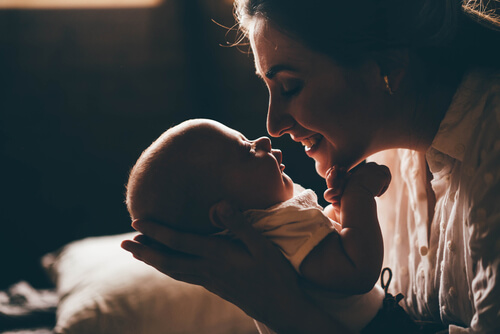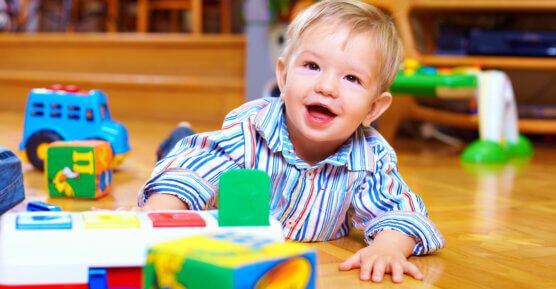
Table of contents
- What is RSV?
- What are the symptoms of RSV?
- Are you at risk from RSV?
- When does the vaccine rollout begin?
- How is the RSV vaccine given and what are the side effects?
- Why is RSV vaccine needed?
- What is the treatment for RSV?
- Do I need the RSV vaccine in UK?
- Who is eligible for the RSV vaccine?
- How effective is the RSV vaccine?
- Is the RSV vaccine safe?
- RSV vaccine will 'save the lives of many'
Table of contents
- What is RSV?
- What are the symptoms of RSV?
- Are you at risk from RSV?
- When does the vaccine rollout begin?
- How is the RSV vaccine given and what are the side effects?
- Why is RSV vaccine needed?
- What is the treatment for RSV?
- Do I need the RSV vaccine in UK?
- Who is eligible for the RSV vaccine?
- How effective is the RSV vaccine?
- Is the RSV vaccine safe?
- RSV vaccine will 'save the lives of many'
The UK is offering the RSV vaccine for pregnant women and the RSV vaccine for babies at high risk. It is offering a vaccine to protect them from the Respiratory Syncytial Virus (RSV).
What is RSV?
Respiratory Syncytial Virus (RSV) is one of the common viruses that cause coughs and colds in winter. RSV is in the same family as the human parainfluenza viruses and mumps and measles viruses.
It is an infection which is spread from person to person. It spreads through close contact with someone who is infected via coughing and/or sneezing.
RSV is a major cause of respiratory illness. It is particularly dangerous for babies and children aged under two years old. The virus can lead to infant bronchiolitis and pneumonia, requiring hospitalisation and intensive care in severe cases. It can be fatal.
What are the symptoms of RSV?
RSV typically causes mild, cold-like symptoms, such as:
- runny or blocked nose.
- sneezing.
- a cough.
- wheezing.
- shortness of breath.
- tiredness.
- a high temperature.
- sweating.
- shivering.
- Symptoms in babies can include feeding and drinking less.
RSV can also lead to severe lung infections like pneumonia and infant bronchiolitis.
Are you at risk from RSV?
- Babies aged under six months old. Frequently develop the most severe disease such as bronchiolitis and pneumonia, which may result in hospitalisation.
- Children born prematurely.
- Babies, children and older adults with a weakened immune system, long-term lung or heart conditions.
- Adults aged 75+
When does the vaccine rollout begin?
The vaccine rollout is UK-wide and started on 1 September 2024 in England, Wales and Northern Ireland. Scotland began its vaccine rollout in 12 August 2024.
How is the RSV vaccine given and what are the side effects?
The RSV vaccine is a single injection in your upper arm. Side effects are usually mild. These include headaches, muscle aches, soreness, redness or swelling at the site of the injection.
Why is RSV vaccine needed?
RSV is a leading cause of infant mortality globally. It infects around 90% of children within the first two years of a child’s life.
Each year in the UK, RSV accounts for around 30,000 hospitalisations in children aged under five. It is responsible for 20 to 30 infant deaths.
Even if you are regularly hand-washing and covering your mouth and nose when you sneeze, it is difficult to avoid spreading the infection in the family. The best way to protect a baby against RSV infection is for pregnant mothers to have the vaccine.
The UK government has stated that the RSV vaccine could ‘help to avoid hundreds of deaths each year’. It is hoped the vaccine will ease winter pressures on the NHS.
Minister for Public Health and Prevention, Andrew Gwynne, said: “As someone who has seen the devastating effects of RSV firsthand. I am thrilled to see the UK leading in the way in tackling this devastating disease.
“My own grandson contracted RSV when he was just days old, leading to weeks in intensive care, and a lifelong impact on his health. I don’t want anyone to go through what he went through.”
What is the treatment for RSV?
According to the NHS, ‘there is no specific treatment for RSV.’ If a child has a high temperature, the NHS advises parents give their child a children’s paracetamol or children’s ibuprofen. Parents can also try smaller feeds more often for babies.
Treatment for RSV in hospital may include administering fluids to the infected person to avoid dehydration. The hospital may give oxygen to help them breathe.
Do I need the RSV vaccine in UK?
The RSV vaccine is not being offered to everyone in the UK. Only a specific group of people are eligible to receive the RSV vaccine in the UK.
Who is eligible for the RSV vaccine?
Those who are eligible for the RSV vaccine are:
- Pregnant women over 28 weeks to help protect their babies.
- Babies at higher risk.
- People aged 75+ years old.
RSV vaccine for pregnant women
Women who are at least 28 weeks pregnant should speak to their maternity service or GP to get the RSV vaccine to protect their baby.
RSV vaccine for babies at higher risk
Some babies are at higher risk of RSV and as a result they may also be offered an antibody injection. The injection provides extra protection on top of any antibodies they might get from their mother.
Babies at higher risk include those born premature or sick with chronic lung disease or congenital heart problems, and those known to have a weakened immune system.
A monthly antibody injection of palivizumab has proved effective at protecting against severe infection and reducing hospitalisation. It is recommended by the Joint Committee on Vaccination and Immunisation (JCVI) for children under two years who are considered to be high-risk.
The palivizumab injection must be given once a month over the RSV season. Healthcare professionals will give up to seven doses.
Baby side effects
Common reactions in babies to the palivizumab injection include redness or swelling where the injection was given, high temperature, diarrhoea or being more unsettled.
In rare cases, a baby may develop an allergic response to the injection e.g. swelling of the face, body, breathing difficulties or rashes anywhere on the body.
How effective is the RSV vaccine?
The vaccine boosts your immune system to produce more antibodies against the virus.
In a pregnant mother, these antibodies then pass through the placenta to help protect an unborn baby from the day they are born.
In clinical vaccine trials, maternal RSV vaccination has been shown to be 70% effective at preventing severe RSV infection in infants born to vaccinated mothers for 6 months.
Is the RSV vaccine safe?
The JCVI advised that an RSV immunisation programme, which is cost effective, should be developed to protect babies and young children.
The vaccine has been studied in clinical trials of almost 4,000 women. It has been given to thousands of women in national programmes. Monitoring in the US, where it has been given to over 100,000 women, has shown a good safety profile. In the main clinical trial, in the month after vaccination, there were slightly more premature babies in the vaccine group (2.1%) than the group that didn’t have the vaccine (1.9%).
The vaccine has been approved by medicines regulators in the UK, Europe and USA on the basis of protection, quality and safety.
The RSV vaccine has been developed and produced by Pfizer. The programme follows advice from the JCVI, published in September 2023.
The JCVI’s advice highlighted the clinical trial for the Pfizer vaccine ‘showed an excess of preterm births in the vaccinated group. A more detailed scrutiny of the Pfizer data by the committee showed no excess of preterm births in HIC [high-income countries].’ The Committee found ‘the excess confined to the study sites in the upper middle-income countries (UMIC), South Africa and Brazil. The JCVI stated ‘There is not an obvious signal of preterm births in HICs.’
RSV vaccine will ‘save the lives of many’
In March 2024, over 2,000 healthcare professionals signed the Royal College of Paediatrics and Child Health (RCPCH)’s open letter urging governments across the UK to implement an immunisation programme in time for next winter.
Steve Russell, NHS national director for vaccinations and screening, said: “RSV is a very serious illness… “causing thousands of babies and older people to spend time in hospital over winter – so this rollout is a huge step forward and will undoubtedly save the lives of many of those most at risk.
Mr Russell encourages “women who are 28 or more weeks pregnant to speak to their maternity service or GP surgery to ensure their baby is protected.”


